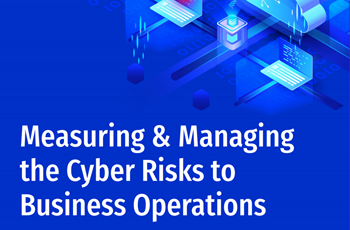This article was updated 16th December 2020.
Security matters more now than ever. The techniques used by criminals are becoming more sophisticated all the time, and the potential rewards on offer are also greater than ever as companies increase the amount of valuable data they hold on customers, employees and their own business.
Whether it is the threat of ransomware blocking access to business-critical files, or the increase in financial penalties for a data breach as a result of GDPR regulations, the risks businesses face are now huge. Therefore, it's vital for every organization to have a skilled security team in place who have the knowledge and experience to protect their company from these threats.
But what skills will be required to achieve this? The current security landscape is a wide-ranging, multi-faceted environment that requires expertise in many areas. It's unlikely one person will be able to fulfil every demand, which is why it's important for you to have a well-rounded team with skills that complement each other.
Here are six essential skills that every company needs to have included in this.
1. Risk management
A strong understanding of risk management is an essential skill to have in any security team, as it will underpin every aspect of how your organization prepares for an attack, how your team should respond to an incident in progress, and what should be done afterwards in the form of restitution and preventing future issues.
No business can eliminate its security risk entirely, so a strong management strategy to identify the areas of greatest vulnerability is essential in helping businesses increase their certainty and put them in the best position to defend themselves.
2. Data analytics
Today's IT environment generates huge amounts of data that can be of use to security departments, so individuals with skills in big data analytics are another important addition to an effective security team. Expertise in this area helps companies track potential threats, identify attacks more quickly and determine the best way to respond.
Large organizations may have thousands of data streams going in and out of their business every day, so being able to look at these and spot any anomalies in and amongst the noise can help businesses react to an attack or an exploratory probe.
3. SIEM skills
Many companies are starting to put in place dedicated security tools such as security information and event management (SIEM) solutions to improve their insight into their network environment - but if these are not configured properly or carefully managed on an ongoing basis, they will not provide the benefits businesses expect.
SIEM tools, for example, can be a great solution for providing a high-level view of a business, but in the right hands, they can do so much more. They can also zoom in to particular areas to evaluate incidents in minute detail - assuming the people using the tools fully understand them and are able to take full advantage of their features.
4. Automation
With so many potential entry points for criminals today, and so much incoming data and network activity to analyze, managing an entire security environment manually will quickly become an impossible task. Therefore, being able to develop automated tools to lift some of the burden from your team's shoulders will be an essential skill.
Developing automated tools can ensure that much of the day-to-day grind of managing security is taken care of, and it can also keep you up-to-date with new threats. AI and machine learning tools, for instance, can react to evolving threats and adapt based on what has occurred in the past.
5. Post-incident forensics
Given the constant arms race between security pros and hackers, 100 per cent security is an impossible goal - even the best defenses can be breached by previously unknown vulnerabilities or new techniques. But in cases where a business has been breached, what happens next is crucial.
As well as an immediate response to plug the breach, businesses must undertake a comprehensive forensic analysis of an incident to determine what, if anything, went wrong and what can be done better in future. This not only ensures that any security holes are fully identified and patched, but also that everyone has a better understanding of how to respond to any future breaches while they are in progress.
6. Softer skills
While technical skills are clearly vital to any security solution, businesses must also not overlook 'softer' skills such as strong communication, collaboration and working under pressure in order to respond effectively to a breach.
They should also have a strong awareness of the non-technological ways breaches may occur, such as through social engineering. Understanding how these hackers operate helps security pros build stronger defenses and means they can better advise employees on how to avoid becoming a victim.
Access the latest business knowledge in IT
Get Access








Comments
Join the conversation...